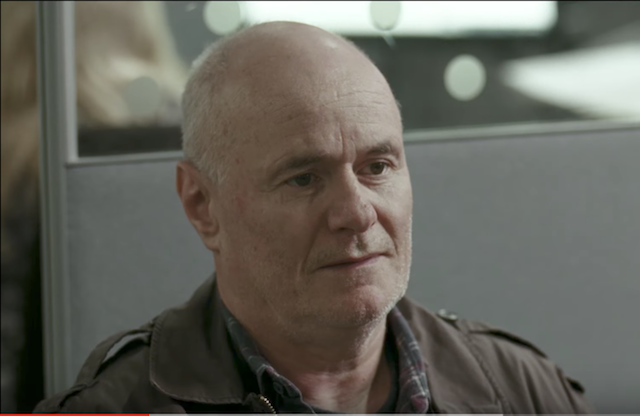Ken Loach’s I, Daniel Blake is a searing indictment of the 21st UK, which has been subcontracting many traditional functions of the state to private corporations. But the film also asks probing questions about the direction in which every society in the developed world is headed. What will happen to our humanity as more and more decisions are made by computers or people who act like them?
As might be expected from a storyteller like Loach, the film shows the predicament of the working class at a time when the divide between haves and have-nots is rapidly widening. Unlike other recent protagonists from this demographic, however, Daniel Blake has not yet been rendered expendable by technological change. There is demand for his services, whether at work or at home. It isn’t his job that has been sent overseas, in a sense, but that of the government workers who might once have been able to help him.
Because a heart attack has made it too dangerous for him to do his job, Blake must navigate a bureaucracy that has been deliberately reengineered to make it difficult for honest people like him to receive the benefits to which they are entitled. That’s what Loach wants us to perceive, anyway. And the narrative makes his point with both laughter and tears.
At the beginning of the picture, Blake is suddenly denied the government assistance he has been depending upon until he can go back to work. In the sort of scenario that Franz Kafka, an insurance adjuster by trade, used as the basis for some of his best stories, this skilled carpenter confronts a paradox. On the one hand, his doctors have made it clear that he is not yet fit to return to work. On the other, an administrative scoring system implemented without these doctors’ input has been used to determine that he is too fit not to be working.
As a consequence, Blake must seek remedy through bureaucratic procedures that are intended to be mutually exclusive. He needs to appeal his score, so that he can once again receive the aid intended for sick or injured workers like himself. Because he has no clear sense of how long this appeal will take, however, he must also file for unemployment benefits in the interim. Perversely, the latter requires him to spend his time applying for new jobs he has been forbidden to take, a pointless exercise that frustrates him enormously. After all, his old job is still waiting for him.
The film focuses more attention on the first quest. Over and over, Blake is directed to go online. Although he is talented at many household pursuits, he has apparently never used a computer before and finds the simplest tasks, such as moving and clicking the cursor, baffling. Since he is not that far from retirement, this ineptitude comes across as a generational failing. Even if the world still needs his handiwork, it has passed him by in other respects.
If there were still a government bureaucrat nearby with the authority to act on Blake’s case, this lack of familiarity wouldn’t present much of a problem. But everyone he encounters at the local government office has seemingly been forbidden to deviate from the inflexible procedures dictated by decision-makers far away. The woman who oversees his unemployment benefits ruthlessly enforces rules that make little sense. And when an older worker recognizes his plight and tries to provide even a little bit of extra assistance, she is harshly reprimanded by her superior. As much as she would like to humanize the impersonal bureaucracy that employs her, she fails miserably because she has not been entrusted with the power to make exceptions.
Blake hears a rumor that the firm responsible for giving him his administrative score is American, which would be fitting, since the safety net in the United States was never as robust as in Great Britain, France or Germany. Yet the betrayal that this outsourcing represents goes deeper than national differences. The problem isn’t that the firm isn’t British, but that it is a firm at all. To the extent that governments relinquish the power to make exceptions as well as rules, they are accelerating our progress into a “post-human” future that threatens to reduce all of us to robot-like functionaries, if not replacing us with actual robots.
In other words, while the state is responsible for making and enforcing laws, its essence must be discerned in the dialectical relationship between those laws and the exceptions to them which its representatives sanction. Once a government ceases to give them the power to deviate from the script, it loses most of its reason for being. That, unsurprisingly, is the argument that Margaret Thatcher, Ronald Reagan and other vanguardists for the neoliberal agenda made in their war against big government and remains the argument that their ideological descendants continue making today. What remains to be seen is how long the Daniel Blakes of this world will continue to support institutions that have been systematically transformed to deny them meaningful benefits.
Screenshot courtesy of I, Daniel Blake. All rights reserved.





